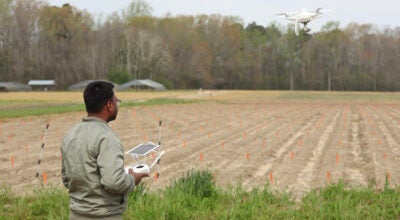Up Center hosts autism social skills group
Published 9:38 pm Wednesday, July 13, 2011
While children with autism all have different struggles, one thing they share is a difficulty with socializing.
The Up Center is trying to help those children gain essential skills to better navigate social situations with its autism social, emotional and educational development, or A-S.E.E.D., program.
The program, which started in October, is hosted in six-week sessions and funded by a grant provided by the Obici Foundation. The center is now hosting its fourth group at Westminster Reformed Presbyterian Church on Mondays.
Up Center in-home clinical supervisor Karen Bailey, one of the group’s facilitators, said she, her co-facilitator Shawn Ware-Avant and other Up Center employees try to build groups with children who are close in age and are at similar levels on the autism spectrum.
Bailey said A-S.E.E.D. is especially helpful for children who are high-functioning autistic, with conditions such as Asperger’s syndrome.
She said people have a tendency to be less accepting of the problems these children have in social settings because they can’t see their condition.
“Because the kids are higher functioning, people think they are just being selfish or being a brat,” Bailey said. “But in reality, they see the world very differently.”
The A-S.E.E.D. program aims to help these children learn how to improve in these tough situations.
Every group meeting has a certain theme that deals with social skills.
The topics cover understanding body signals, handling stressful situations, knowing the right and wrong things to say and accepting “no” as an answer.
Much of the conversation is Ware-Avant teaching the children how to handle themselves in different situations, but Bailey said the attendees also participate in the discussion.
She said they talk about their experiences, like having trouble making friends.
After having a conversation about the topic, the group then participates in games and activities that challenge the skills they discussed.
Bailey said being surrounded by their peers at the groups is an even bigger help to the children because other children judge them on a different level than adults.
“They learn how to interact with their peers as opposed to interacting with adults,” she said.
In addition to the A-S.E.E.D. program, the program also offers the children’s parents help and support.
While their children are in one room, the parents meet and have discussions about their lives and children in another.
Bailey hosts the parent sessions, and she said she hopes it gives parents a safe and confidential place to talk.
“I want to let them feel better about themselves,” she said. “It’s a combination between educating them and creating a place in which they can self-disclose.”
She said parents of children with autism can feel alone sometimes, and the group is an opportunity for them to meet with other people who understand what they are going through.
Bailey added she wants the parents to better understand their children’s conditions while making connections with other parents who are in the same situation.
Although the current session is filled, Bailey said the Up Center plans to continue the program.
“We want to help as many families as we can,” she said.
However, the groups do not accept anyone who comes to the meetings without signing up. Parents and children must be interviewed by the Up Center to ensure the program is a good fit for them.
For more information, call Ciara Henry at the Up Center at 622-7017, ext. 112.






